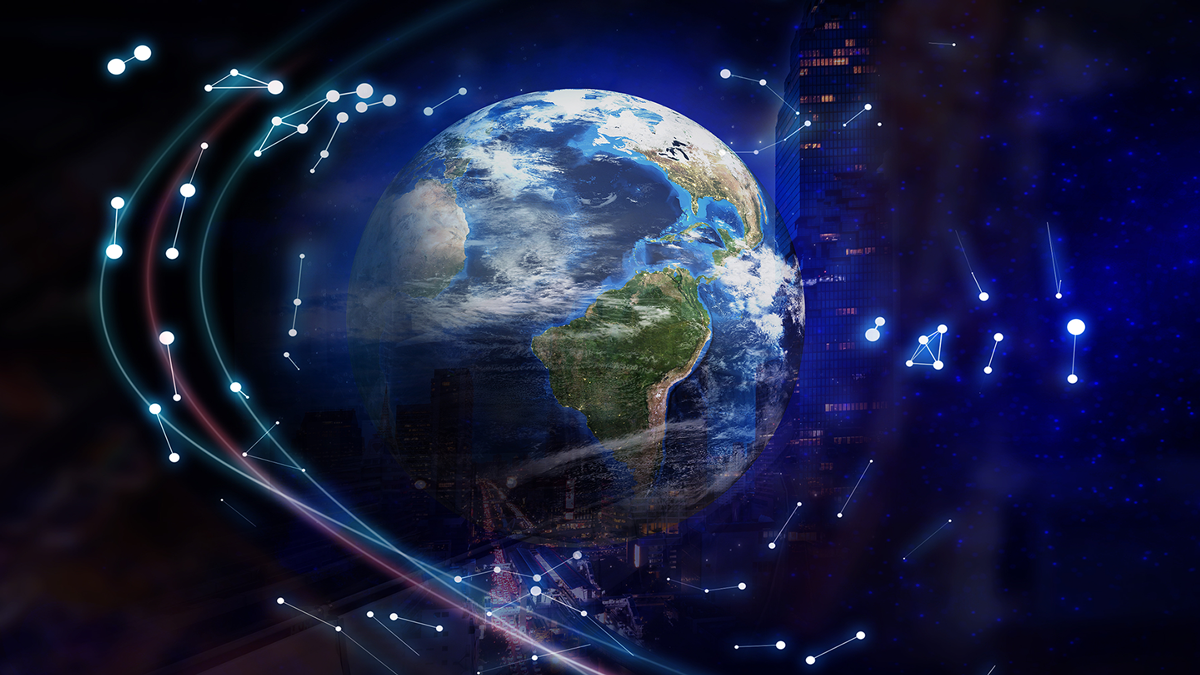
Is there a cookie (pie) big enough for us all?
Burning down a straw man before it’s built is a charade and a sham that predictably looks for dreams to kill, just take a peek at various articles predicting the end of web3 before it starts.
Recently there’s been a series of dust-ups and take-down attempts gunning for web3, crypto and anything decentralized or connected to buzz words like, DAOs, Defi, etc.
As logically sound as these diatribes may appear, in every case there’s a fatal flaw that’s oddly never mentioned: that at its essence web3 is a desire, an aspiration and, above all, a proposed remedy to what’s wrong with all that is, internet-wise in the present day.
Maybe it’s because the current wave of developers and venture capitalists that are at the forefront of, supposedly, building a new web, are basing the entire enterprise on a build-it-and-they-will-come mentality.
But will they come? In the end it is the crowds that make the concert. Even something as terrible and flawed as Facebook couldn’t be stopped because the crowds, both fake and, later, real-ish, did come.
Regardless of the theoretical merits of an idea or movement, if the masses do not cooperate in creating critical mass for the idea, there will be no coming out party, ever.
This is the true hope that lies beneath. The dream that dare not speak its name is not based on logic, or realistic viability, it is based on a desire that can’t be stopped, a need that does not just die out because of flawed models of centralized, decentralized or any other wannabe structure of interaction.
Web2 is dying before our eyes. Something will replace it. The rumblings from beneath in a Chinese music app named after the sound a clock makes and even from this very medium are that peer to peer power is what will drive web3 into whatever it will become.
Decentralized? The fight over defining web3 is lost in space
Peer to peer power does not rise from the barrel of a gun or even from the blockchain. It comes from the rejection of hierarchical structures that strangle creativity, and more importantly, that have no place for broadly distributed communication and prosperity to flourish.
The zero-sum mindset that Elon Musk calls wrong and that leads to “morally questionable” acts is not built to last and the top-down economics of 1 Zuckerberg per each billion users is dead and dying fast.
Can there be a Robin hood Parable 3.0: steal from nobody and give to everybody?
The infinite pie theory is the only one that fits and, according to Musk, it’s about the mindset, and adopting it all the way can take you all the way to the promised land.
The TikTok army of souls knows this and will only respond to a sustainable vision of renumeration that is, if not decentralized, at the very least widely distributed, peer-to-peer and devoid of outdated vertical top-heavy crap systems and platforms that do not work for the individual at a broad based level.
The Sun is always shining, even at night
If a “small section of southeastern Utah” can power the energy needs of the entire USA via solar, at a minimal cost compared to setting fossilized forests ablaze, then why can’t the wealth benefits of that energy be distributed across the population in a more equitable way than Malthus and the zero-sum mafia would have you believe is inevitable?
The answer to that question, beyond the benefits of asking it, is beyond the scope here, but in the case of web3 coming about it is not possible to say that it will rise as nothing more than web2 in sheep’s clothing, as Professor Scott would have you believe.
Because it will take a revolution to change and tear down the mistakes of web2 (and some other outdated baggage along the way) and that is already building in the need and desire of the population that “benefits”, or not, from the current system.
The technology that is abandoned will be the tech that is not able to exist in a world where building pyramids of crap for the Pharaohs of Facebook will just not cut it anymore. And, just as web3 already exists, not in structures built to corral and kill its spirit, but in the spirit and the need for a change and better way to make use of the network.
Related Articles:
- Is 2023 the year for Virtual Reality Workouts?
- Fitness with Apple Watch: A Day in the Life of Highly Motivated Ring Closers
- Goodbye Twitter, Hello Mastodon!
- The Vision of Steve Jobs for the Future of Apple has Barely Begun to Emerge
- Is This Jason Statham Video Real or Deepfake TikTok Account? You Decide
Enjoy Lynxotic at Google News and Apple News on your iPhone, iPad or Mac.
Find books on Music, Movies & Entertainment and many other topics at Bookshop.org
Lynxotic may receive a small commission based on any purchases made by following links from this page